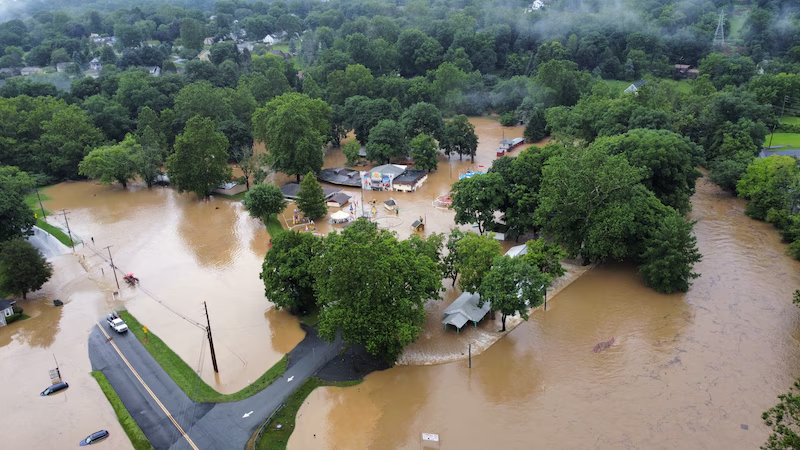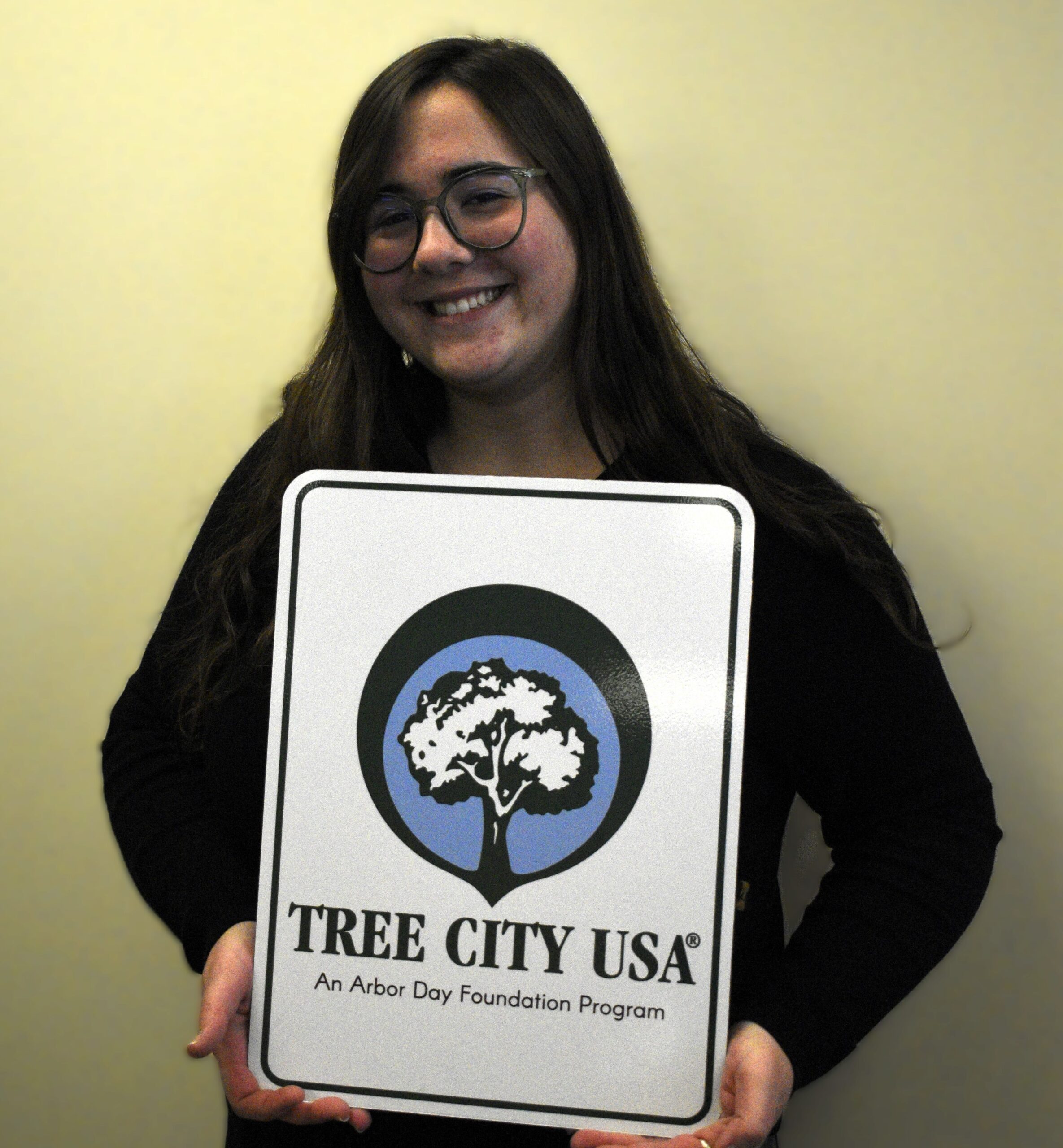Apply now to join our next cohort of Community Science Fellows and Community Leads!

This project aims to develop a comprehensive flood mitigation strategy for Palmer Township, PA, addressing the dual challenges of stormwater management and riverine flooding exacerbated by more intense and frequent heavy precipitation events. Through a collaborative effort between the community, scientific experts, and local stakeholders, the project will leverage both community-sourced data and advanced datasets to inform local decision-making, enhance disaster response, and implement sustainable flood mitigation measures. The ultimate goal is to create a resilient community better prepared for future climatic events by developing actionable plans and educating residents on effective stormwater management practices.
Palmer Township is a rapidly growing community in Lehigh Valley, PA, with a population of approximately 23,000 residents (about the seating capacity of Madison Square Garden). Historically a rural agricultural village, Palmer Township has transformed into a diverse suburban municipality over recent decades. This growth has brought numerous challenges, particularly concerning stormwater management and flood mitigation, exacerbated by more intense and frequent storms attributed to climate change.
Palmer Township has faced significant flooding issues, both from inadequate stormwater infrastructure and from its creeks, Bushkill and Schoeneck, which often overflow during heavy rains. The lack of proper stormwater management in older residential and industrial areas, combined with increased storm intensity, has led to frequent and severe flooding. The community seeks to understand the impacts of these events and develop actionable mitigation plans.
Palmer Township’s Hazard Mitigation Plan,
Lehigh Valley Hazard Mitigation Plan, and
Palmer Township seeks to partner with a scientist experienced in stormwater management and riverine flood monitoring to develop a comprehensive flood mitigation plan. The project aims to leverage a combination of community-sourced data and ancillary datasets to enhance local decision-making and disaster response.
What?
Where?
When?
How?
Key Challenges:
Community Vision and Engagement
Palmer Township envisions a project that not only addresses immediate flooding concerns but also educates residents on stormwater management and engages them in sustainable practices. The community aims to develop a stormwater management guide for homeowners and implement infrastructure improvements to mitigate flood risks.
Community Involvement:
By addressing these challenges through a collaborative, data-driven approach, Palmer Township hopes to create a resilient community better prepared for future climatic events.
Proposed Project Timeline:
This project will be iterative, requiring regular communication with scientific partners to adapt to the unique needs of Palmer Township and refine the approach as new data and insights emerge.

Craig Beavers serves as the Assistant Director of Planning for Palmer Township, Northampton County. Craig manages the land development process for the Township, including processing development applications, reviewing projects for compliance with local and state legislation and community goals, and overseeing construction projects. He also provides staff support to the Planning Commission and Board of Supervisors, helping to implement the 2018 Comprehensive Plan for the community. Craig received his B.A. in Administration and a minor in Business from Marywood University in Scranton, Pennsylvania, and is currently pursuing a Master’s in Urban and Regional Planning from the University of Florida. He holds professional certification as a Certified Floodplain Manager and volunteers as the Chair of the Lehigh Valley Section of the American Planning Association.

Paige Strasko is the Environmental Administrator, MS4 Coordinator, and Tree Coordinator for Palmer Township, Northampton County. She is a Certified Stormwater Inspector (CSI) and is an Environmental Science graduate from the University of Maine with experience in water sampling and testing, laboratory work, and data collection. Paige has worked with Palmer Township to develop and implement their stormwater program to remain compliant with the Municipal Separate Storm Sewer System (MS4) Permit. She has experience with stormwater education for the public, inspections of stormwater infrastructure, organizing community events, public relations and communications, and working with local volunteer organizations. Paige’s expertise is in Mycology, but she has a passion for helping build her community through her work in public service.

Bashudev Neupane is a doctoral researcher at Tor Vergata University in Rome, Italy, and a member of the Global Alliance for Inter- and Transdisciplinarity (ITD Alliance). He possesses extensive experience in managing both non-profit and for-profit organizations and has served as a consultant to government and non-governmental agencies, as well as local, regional, national, and international organizations. He has been awarded by UNESCO for his contributions to science communication.
His expertise spans trans-disciplinary research, environmental engineering, integrated water resources management, hydrological modeling, GIS, remote sensing, data science, and water quality and quantity assessment. Bashudev has led basin and catchment scale planning and has a special interest in the criticality of infrastructure and the heritage prospects of them.
Expertise Desired:
The ideal expertise for this project includes a strong background in riverine flooding and heavy precipitation events along with experience in large-scale data management and spatial data analysis using GIS. Proficiency in hydrological modeling and familiarity with machine learning and non-traditional data sources are essential. The candidate should have experience conducting UAV/drone surveys and real-time monitoring of environmental data. Effective communication skills are crucial for transferring knowledge to community members, and the ability to work collaboratively with diverse stakeholders is key to the project’s success.
Desired Skills and Qualifications:
Thriving Earth Exchange asks all scientific partners to work with the community to help define a project with concrete local impact to which they can contribute as pro-bono volunteers and collaborators. This work can also position the scientists and communities to seek additional funding, together, for the next stage.
(c) 2025 Thriving Earth Exchange